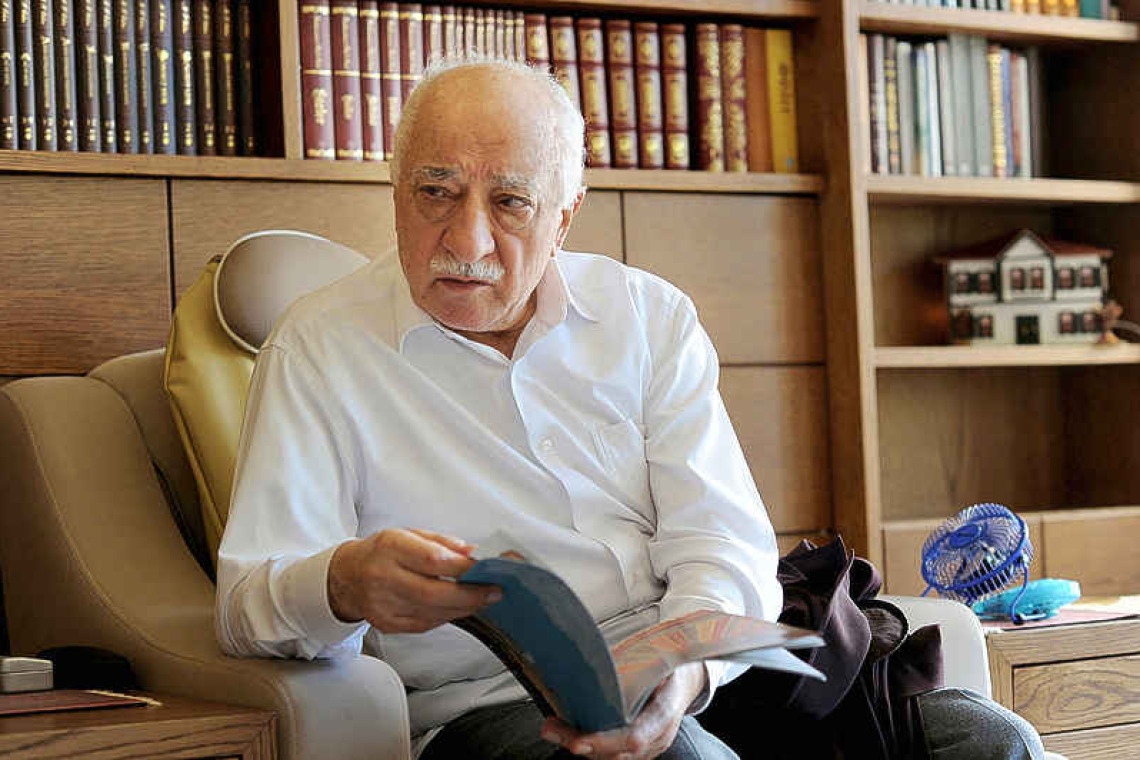ISTANBUL--The U.S.-based cleric Fethullah Gulen, who built a powerful Islamic movement in Turkey and beyond but spent his later years mired in accusations of orchestrating an attempted coup against Turkish leader Tayyip Erdogan, has died. He was 83.
Herkul, a website which publishes Gulen's sermons, said on its X account that Gulen had died on Sunday evening in the U.S. hospital where he was being treated.
Gulen was a one-time ally of Erdogan but they fell out spectacularly, and Erdogan held him responsible for the 2016 attempted coup in which rogue soldiers commandeered warplanes, tanks and helicopters. Some 250 people were killed in the bid to seize power.Gulen, who had lived in self-imposed exile in the United States since 1999, denied involvement in the putsch but his movement was designated as a terrorist group by Turkey.
Foreign Minister Hakan Fidan confirmed his death, describing him as the leader of a "dark organisation" and saying that Turkey's fight against the group would continue."Our nation's determination in the fight against terrorism will continue, and this news of his death will never lead us to complacency," Fidan told a press conference.
According to its followers, Gulen's movement - known as "Hizmet" which means "service" in Turkish - seeks to spread a moderate brand of Islam that promotes Western-style education, free markets and interfaith communication.Since the failed coup, his movement has been systematically dismantled in Turkey and its international influence has declined.
Known to his supporters as Hodjaefendi, or respected teacher, Gulen was born in a village in the eastern Turkish province of Erzurum in 1941. The son of an imam, or Islamic preacher, he studied the Koran from infancy.
In 1959, Gulen was appointed as a mosque imam in the northwestern city of Edirne and came to prominence as a preacher in the 1960s in the western province of Izmir, where he set up student dormitories and would go to tea houses to preach.These student houses marked the start of an informal network which would spread in coming decades through education, business, media and state institutions.
His influence also spread beyond Turkey's borders to the Turkic republics of Central Asia, the Balkans, Africa and the West through a network of schools.
Fidan said he hoped Gulen's death would lift a "spell" over Turkish youth who had taken a path of "betrayal" against their country under the pretence of religious values. "This is not a good road," he added.
Gulen had been a close ally of Erdogan and his AK Party, but growing tensions in their relationship exploded in December 2013 when corruption investigations targeting ministers and officials close to Erdogan came to light.Prosecutors and police from Gulen's Hizmet movement were widely believed to be behind the investigations and an arrest warrant was issued for Gulen in 2014. His movement was designated as a terrorist group two years later.







